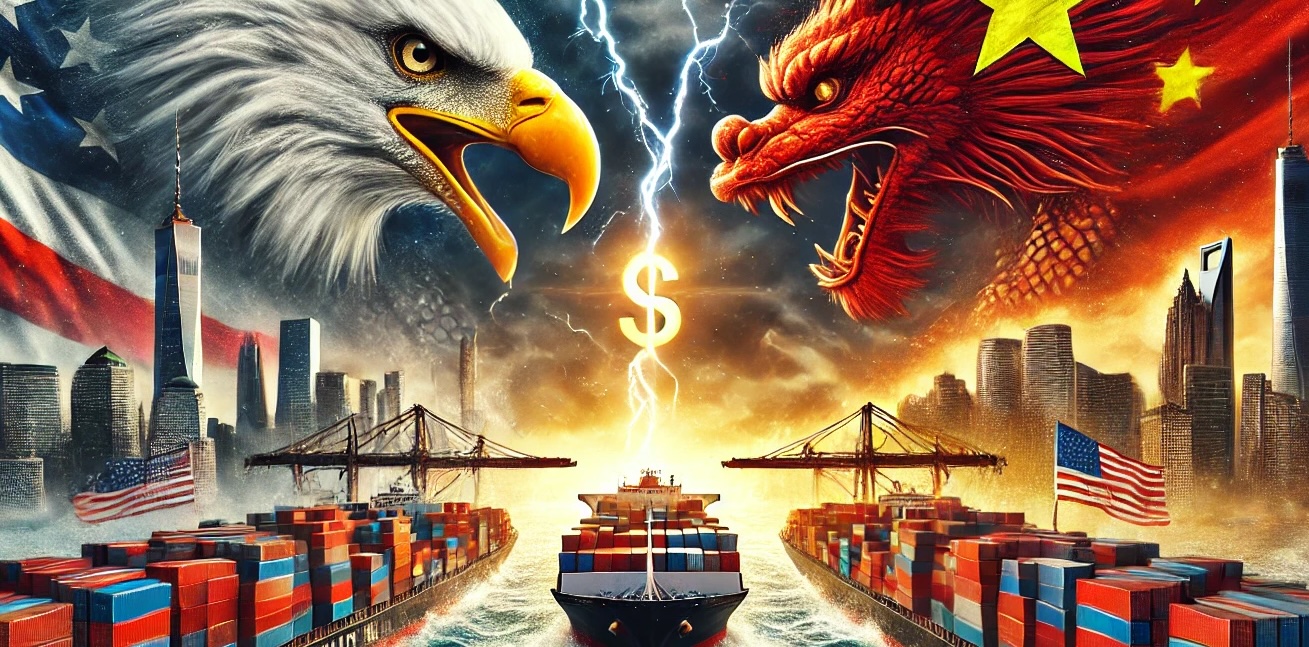Already a subscriber? Make sure to log into your account before viewing this content. You can access your account by hitting the “login” button on the top right corner. Still unable to see the content after signing in? Make sure your card on file is up-to-date.
China has accused the United States of engaging in “unilateral” economic “bullying” through tariffs being imposed on global trade.
Some shit you should know before you read: If you’re unaware, US trade with China is pretty big—totaling an estimated $582.4 billion in 2024. That includes $143.5 billion in US exports (down 2.9% from 2023) and $438.9 billion in Chinese imports to the US (up 2.8%). Last Wednesday, Trump announced a new 34% reciprocal tariff on China, which would be added to existing duties—including a 20% tariff he imposed earlier over China’s role in the fentanyl trade—bringing the base tariff rate on Chinese imports to 54% starting April 9. Today, the president announced he would impose an additional 50% tariff on Chinese products if China fails to drop its 34% retaliatory tariffs on the US.

What’s going on now: During a press conference, China’s Ministry of Foreign Affairs spokesman, Lin Jian, criticized the latest round of US tariffs as “typical unilateral and protectionist bullying.” He condemned the United States’ approach, stating that “putting America first before international trade rules harms global production and will impair the world’s economic recovery.”
Lin warned that China would not be intimidated by pressure from the US. He said, “Pressure and threats are not the way to deal with China. China will firmly safeguard its legitimate rights and interests.”
In a formal position paper released shortly after Lin’s statements, China reinforced its stance, accusing the United States of weaponizing tariffs to suppress China’s economy. The document stated that US levies had “severely violated” the legitimate interests of other countries and “severely undermined the rules-based multilateral trade system.” It also called on the international community to “jointly oppose all forms of unilateralism and protectionism” and to help “safeguard the international system with the United Nations at its core.”
Vice Minister of Commerce Ling Ji echoed this message in a meeting with major American companies that operate in China, urging them to acknowledge the US role in escalating tensions. Ji said, “The root of the tariff problem is in the US. We hope the American companies can address the problem at its root, issue reasonable statements, take concrete actions, and work together to safeguard the stability of the global supply chain.”
This all comes as the European Union held its first-ever high-level summit with the five Central Asian nations—Kazakhstan, Kyrgyzstan, Tajikistan, Turkmenistan, and Uzbekistan. During the summit, both sides agreed to upgrade their relationship to a “strategic” partnership, committed to deeper cooperation on trade, water management, and access to rare earth materials.
A notable development out of the meetings was the EU’s backing of the Middle Corridor, a trade route designed to connect Europe and Asia while bypassing Russia.






